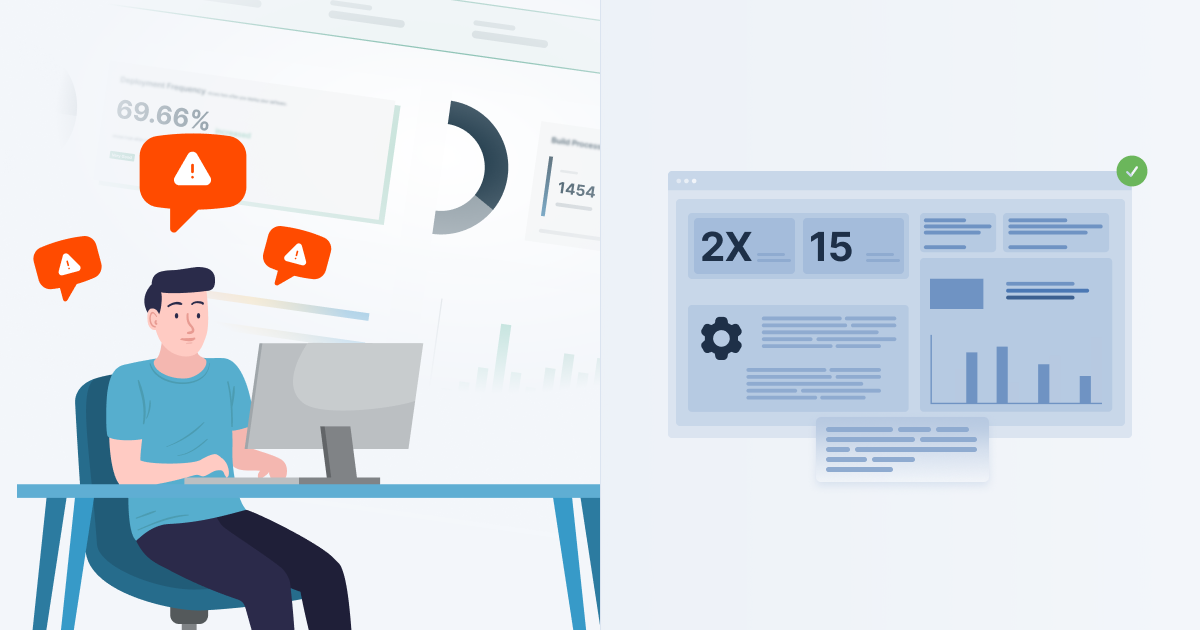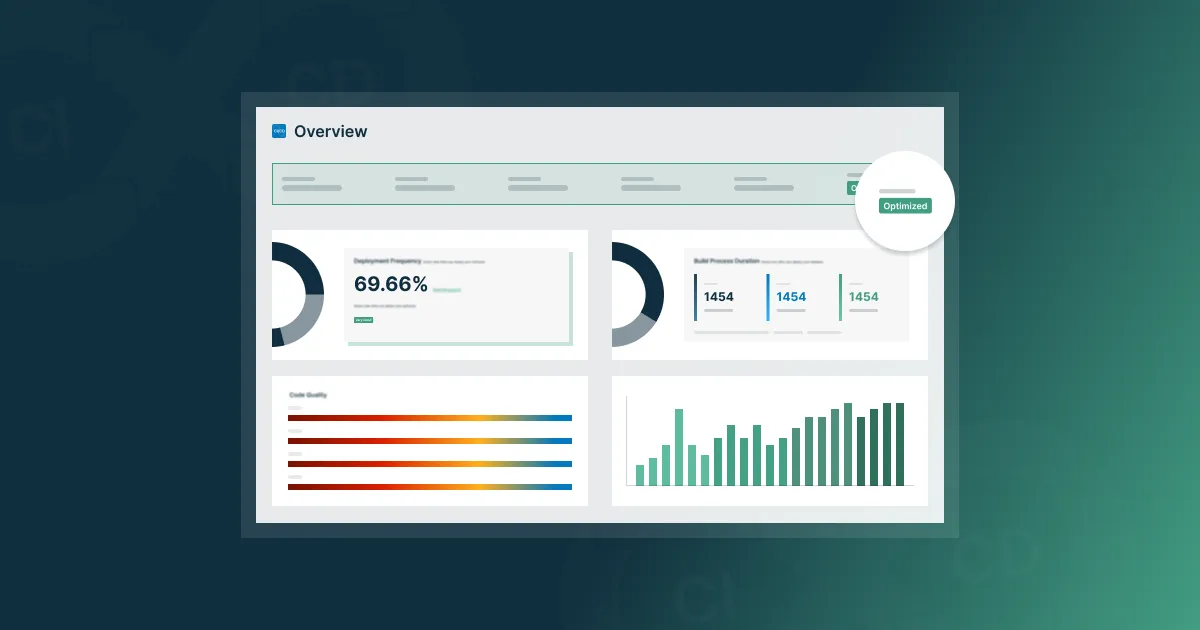Choosing the Best AI Agent for DevOps Incident Response Success
.png)
DevOps engineers know the feeling when alerts are flooding in, services are degrading, and stakeholders are asking for updates while they are still trying to understand what went wrong. Traditional incident response puts teams in a reactive cycle where the challenge isn't just speed but cognitive load.
AI agents are used to transform incident response from a human-intensive process into an intelligence-augmented operation. The best AI agents for incident response compress the time between "something is wrong" and "here's exactly what happened and how to fix it." Therefore, they don't just automate tasks. What they do is provide contextual understanding that turns chaotic alerts into actionable intelligence.
What Makes an AI Agent Different?
An AI agent is a sophisticated system that processes real-time information from multiple sources. To refer to it as just an advanced chatbot or automation script would be an understatement. The differentiator is their ability to perform the investigative workload that typically requires Tier-1 and Tier-2 analysts, but at machine speed and scale.
Let's see what this purpose-built system can offer:
- Smooth integration with existing DevOps toolchains and monitoring systems
- Learns from historical data to improve future incident response accuracy
- Autonomously investigates incidents by gathering context from multiple sources at the same time
- Adapts to new scenarios without requiring predefined playbooks or manual configuration
- Reason through complex evidence to identify patterns and correlations humans might miss
Core Capabilities of DevOps AI Agents
Modern AI agents for DevOps teams typically offer several main capabilities that work in seamless coordination. Rather than simply forwarding every alert to human operators, these systems begin by performing intelligent alert triage. They analyze alert severity, context, and historical patterns to prioritize incidents effectively.
Once prioritized, the AI agent immediately launches autonomous investigations. It collects logs, metrics, and contextual data from the entire infrastructure stack to build an all-inclusive incident timeline. This comprehensive data collection enables sophisticated root cause analysis. The agent combines events across different systems and time periods to identify the cause of incidents faster than any manual investigation.
If the incident types are well-understood, the AI agents can execute automated response actions and predefined remediation steps. This way, they often resolve issues before they impact end users. It's worth mentioning that throughout the entire process, each incident becomes a valuable learning opportunity. The AI agents continuously build the knowledge that helps respond to future issues with accuracy and speed.
Key Criteria for Choosing the Best AI Agents for Incident Response
The DevOps team should carefully evaluate the different features and aspects of the AI agent before selecting the one that fulfills their requirements. Here are some of the key criteria to look into when doing the research.
- Speed and accuracy: Fast initial assessment (2-3 minutes vs. 30-60 minutes manually), overall investigation depth, high root cause identification accuracy, and minimal false positive rates.
- Security and compliance: End-to-end data encryption, role-based access controls, compliance certification, and clear data residency policies.
- Integration and compatibility: Deep contextual integration matters, which is why there should be seamless connectivity with monitoring platforms, cloud services, communication channels, CI/CD pipelines, and SIEM tools.
- User experience: Natural language interfaces, clear visualization of findings, multi-channel accessibility, and effective collaboration features for team coordination.
- Scalability and performance: Concurrent investigation handling, extensive historical data processing, consistent performance under high alert volumes, and efficient use of resources.
- Adaptability: Dynamic reasoning for new incidents, pattern recognition for historical data, context awareness of the specific infrastructure, and continuous improvement capabilities without static playbooks.
- Customization and compliance: Configurable alert routing and escalation paths, adjustable investigation depth, tailored reporting formats, and adaptable integration settings for unique environments.
Advanced Features That Set the Best AI Agents Apart
There is more to the agents than just the main capabilities. Leading AI agents for incident response offer advanced features that can significantly enhance a team's effectiveness.
Multi-Modal Analysis
Advanced AI agents are used to process and combine different types of data at the same time. This means going through structured logs, unstructured text, time-series metrics, and even visual data like charts and graphs. The analysis should reveal insights that single-modality systems often miss.
Predictive Incident Prevention
The most sophisticated AI agents help to prevent and not just respond to incidents. These systems use the analysis to identify conditions that typically precede outages and alert teams before problems occur.
Contextual Business Impact Assessment
The best AI agents for incident response also understand the business context of incidents. This means that they can assess which services, customer segments, or revenue streams are most affected. It's a great way to help teams prioritize their response efforts.
Collaborative Intelligence
There is no success when acting in isolation, and this is also true for AI agents. Success is achieved by balancing the human-AI collaboration. In order to provide clear reasoning for their conclusions and suggest investigation paths, they need human feedback to learn and improve future performance. One cannot go without the other.

Setting the Standard for DevOps AI Agents
Microtica's AI Incident Investigator comes up on top when evaluating AI agents for incident response. This is due to the advanced capabilities that teams require. DevOps teams use the Incident Investigator as more than just a tool that alerts them to problems, which is the case with most traditional monitoring tools do. Its power is that it acts as a team member who autonomously investigates incidents and provides actionable insights.
This tool uses advanced machine learning algorithms to analyze the whole infrastructure at the same time and compare events across applications, databases, networks, and cloud services. The incident reports that are delivered within minutes of an alert include:
- The potential root causes
- Affected systems
- Recommended remediation steps
What sets Microtica's solution apart from the others is the understanding of cloud-native architectures and modern DevOps practices. It doesn't just collect the data but also understands the relationships between microservices. At the same time, it also predicts the impact of recent deployments and the cascading effects of infrastructure changes, helping organizations to identify root causes. It represents the cutting edge of AI-powered operations.
Conclusion
The success of AI agents depends on many factors that justify the investment. Among them are integration, accuracy, and team adoption rates. However, the transformation of DevOps through AI agents is not a future possibility. It is happening now as teams use these technologies to enjoy significant competitive advantages.
Instead of being an organization that just uses better technology, why not be one that combines advanced AI capabilities with thoughtful implementation strategies? This will allow you to address the technical requirements and the human workflow patterns.
Subscribe to receive the latest blog posts to your inbox every week.
*By subscribing you agree to with our Privacy Policy.

Relevant Posts



